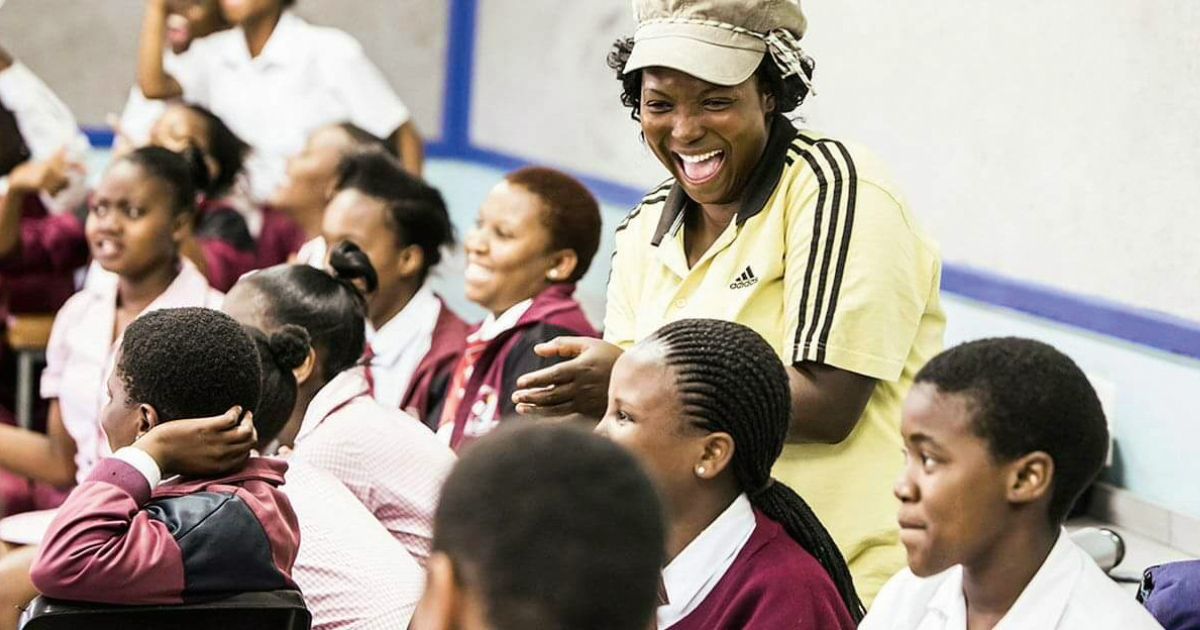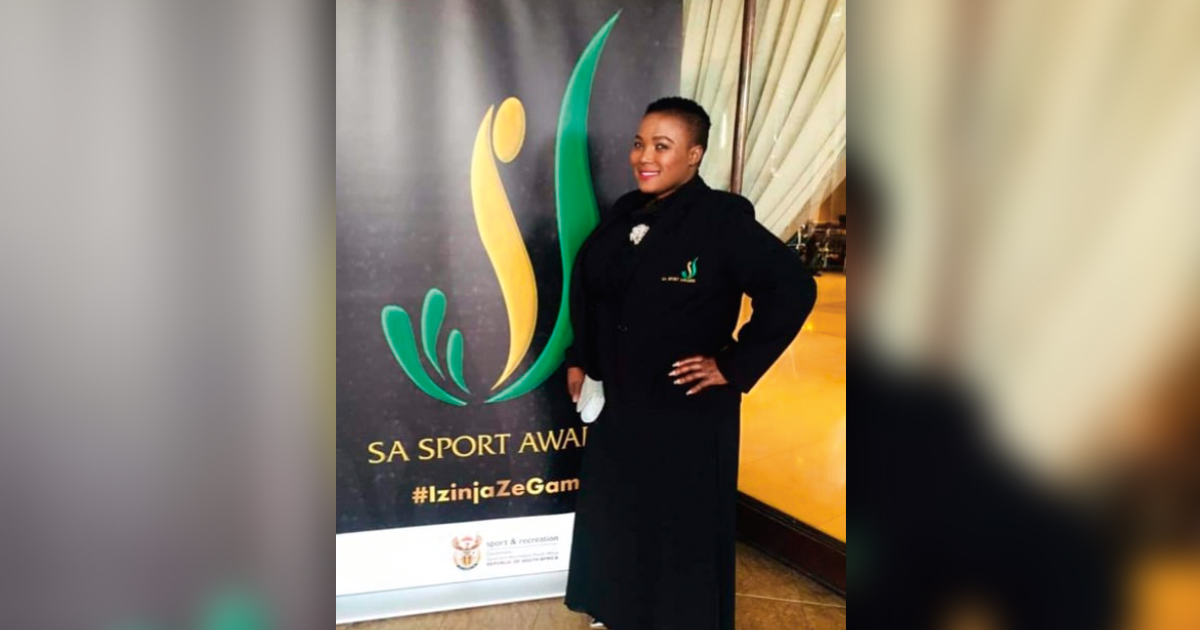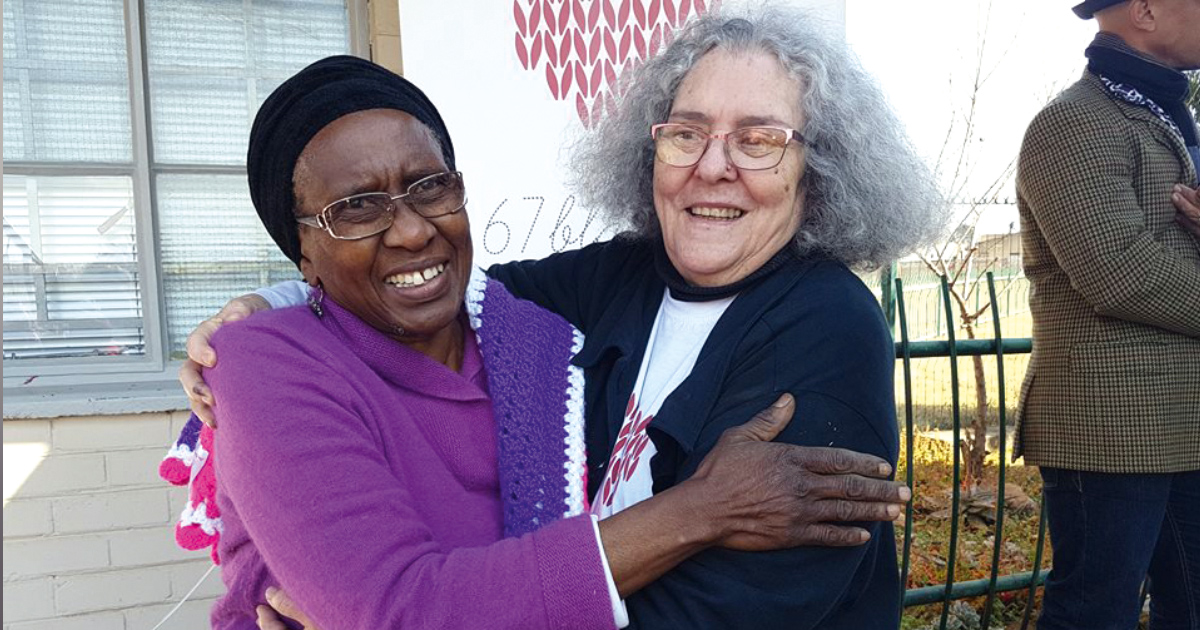Two women on a mission to help our youth

We spoke to two inspirational women who work to improve the lives of children.
When Songelwa Sicuku-Mkita entered the world of sport in primary school, she had no idea that it would shape the rest of her life. ‘I was not even athletic,’ she laughs. ‘I was following friends because I knew there was really nothing waiting for me at home except cleaning and cooking.’ But once she started playing netball, nothing could keep her away from the grounds. She fell so in love with the sport that she started carrying a ball around in her bag.
Songelwa was orphaned when she was just seven years old, and had to be raised by her physically challenged 18-year-old brother. Today, she is the Centre Manager at Mbekweni Community Sport Centre with SCORE and Hope Through Action, in Cape Town. She works with small and teenage kids in getting them to be active in sport, which keeps them busy and off the streets.
She got involved with SCORE when she was in high school. It’s an international programme that runs sports programmes in schools, including in South Africa. After matriculating, Songelwa became a community volunteer for SCORE and got a chance to join their exchange programme, which meant she was based in Norway for six months.
GIVING BACK THROUGH SPORT
When she returned home, she knew her purpose was to give back to her community through sport. While working for SCORE, she met many girls who had gone through traumatic situations, including rape and abuse. Together with a group of friends, she started a project for girls called Youth in Action.
In 2005 they restructured the programme to include referrals for counselling services and medical specialists, and also worked with the Department of Home Affairs on getting documentation for the girls as well as involving them in sport, sewing, gardening and other activities. In 2006 Youth in Action merged with SCORE’s We Are Girls (WGILS) programme, which runs similar services. ‘I have a soft spot for girls because I know the challenges I faced growing up without parents,’ says Songelwa.
‘The programmes we run impact thousands of kids, both males and females, and that makes me happy.’ When people ask her what inspires her to do what she does, she tells them it’s her past. ‘Whenever I think of how I passed through difficult life stages, it was because I had many people who took it upon themselves to help me and my siblings,’ she says. ‘I had teachers who offered to do our laundry, neighbours who brought us food, social workers who took care of our wellbeing and other community members who contributed in many ways.’
Songelwa says it has always been her mission and vision to give back, and she gets a lot of satisfaction from the sporting and the girls’ programmes. ‘Through every challenge I’ve experienced, I’ve always had hope that things would change,’ she smiles. ‘I look back and I’m proud that I never gave up on life, and that is why I teach my children at SCORE that their past should not determine their future – and I’m an example of that. This is my way of paying it forward.’
CARING FOR HER SHINING STARS
Some would say 1989 was a year of misfortune for Prisca Tshabalala of Soweto but for her, it was the year that God gave her a gift and a new purpose in life. It is the year that her son Nkanyezi (which means ‘star’) was born with cerebral palsy (a condition that affects body movement and muscle coordination). Having had four healthy children, Prisca was not skilled at taking care of a child with special needs, but she was determined to learn.
‘I was trying to learn how to take care of my son when my husband told me to take him to be raised in a facility,’ she says, ‘I refused. This was my child.’ He then gave Prisca an ultimatum, saying if she kept their son, he was going to leave and divorce her. ‘I was unemployed and had other children to raise,’ she says, ‘but the choice was simple; I chose divorce. I was never going to give my child away to be raised by strangers while I was alive!’
Without a job, Prisca visited a few schools that take care of children with disabilities. There was no work, but she volunteered to work as a cleaner at various schools, so she could learn more about disabilities and how to take care of children with special needs. None of them could take Nkanyezi, however, as they didn’t have space. Nkanyezi didn’t’ have a wheelchair, and was growing too heavy for his mother to continue to piggyback him. But Prisca continued to volunteer. ‘At one school,’ she recalls, ‘the principal was kind and allowed me to work there – without pay, but I could keep my son in class with the other kids while I worked.’
Then one day, one of the teachers didn’t come in and the principal asked her to supervise the class for the day. ‘I guess I did a good job,’ she smiles, ‘because I started being a stand-in for absent teachers. I also started getting paid.’ In the years that Prisca was working at the school, she ran a support group for parents of kids with special needs, as there were so many in need of help.
WHERE THERE’S A WILL…
‘I knew I had to do something,’ says Prisca. ‘There was a piece of vacant land that was dirty and had grass growing all over it. I tried locating the owner but hit a brick wall every time, but I started cleaning it. I didn’t even know how I was going to build a school, but I had hope that it would all come together.’ With the help of the parents in her support group, funds were raised and money was donated and eventually a small school was built, with two classrooms. She worked with a few volunteers and took training courses to help her qualify to run the school, which she named Dimpho (‘gifts’).
Eventually, Prisca discovered that the land belonged to Johannesburg City Parks. When they found out about her work they, together with Standard Bank, made a huge donation that made it possible for big improvements to be made. The school was revamped with extra facilities, and is now registered as an NGO with the Department of Health. It has since grown and now accommodates more than 60 children with various special needs. It also has a number of employees, including the people who cook three meals a day for the children, based on their dietary requirements.
Nkanyezi sadly passed away in 2000 when he was 11 years old. Prisca made a promise to him, that she would continue with the work they had started in improving the lives of children like him. The centre’s name was changed from Dimpho to Nkanyezi Stimulation Centre, in tribute to the angel who made it possible for his mother to start the amazing work she does.
‘I will never complain about anything I went through to get this school up and running – or all the challenges we faced in raising funds, getting equipment such as wheelchairs, food to cook for the children and so on – because I know it was God’s plan.’ says Prisca. ‘If Nkanyezi hadn’t been born with a disability, I would have chosen a different path in life.’
Prisca’s selfless work has not gone unnoticed. She has won several awards and has spoken on many local and international platforms about helping parents of children with disabilities, and the children themselves. Long may her work continue.
Related articles

Latest Jet club magazine
We’ve got the latest trends, exciting prizes and exclusive savings just for you!
Jet Club will not pass your details to anyone else. By clicking the subscribe button you confirm you have read and agree to the Jet Club Terms and conditions and Jet Club Privacy Statement.
Subscribe




